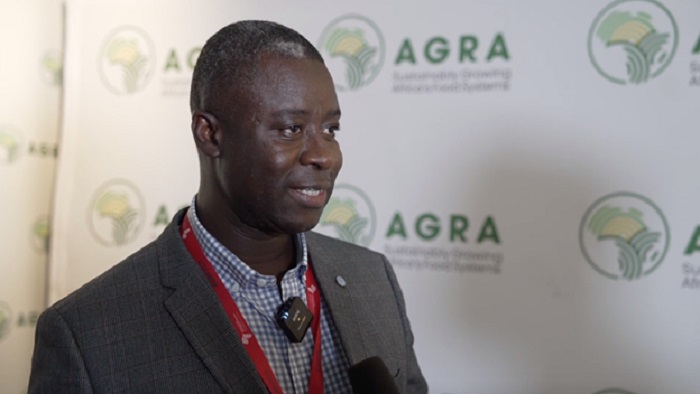Dr. Godfred Jasaw
Climate-resilient agriculture has been touted as the best approach for farmers to manage the impact of climate change which is affecting the sector’s productivity in Africa.
The concept refers to adaptive agricultural practices that can withstand the shocks of climate change and weather extremes.
“The impact of climate change is huge and real. So, investment in climate-resilient agriculture is the way to go,” said Dr. Godfred Jasaw, Member of Parliament for Wa West Constituency.
“Unfortunately, there has not been a lot of commitment in the area of climate-resilient agriculture investment,” he said in an interview.
Sharing the case of Ghana at the Africa Food Systems Forum (AGRF) 2023 which started on September 5, 2023 in Dar es Salaam, Tanzania, Dr. Jasaw said advocacy has already started from within the Parliament of Ghana where parliament groups for climate and agriculture were formed.
“We are doing a lot of advocacy to draw attention to the reality of the impact of the changing climate on food systems and food production. My hope is that we will be able to move that agenda forward and make sure that many communities can be able to understand the challenges of climate change that we are facing,” he said.
Speaking of other related challenges, Dr. Jasaw said the focus should be on discussing about policy actions that will accelerate progress in Africa’s agriculture and food systems.
“We should look at how we will invest in policy actions and one of the ways is to equip the stakeholders in the governance architecture. You have the executive, the parliament, the civil society organisations and all the many non-state actors that are supposed to be playing critical roles in making sure that we move the agenda of agriculture and food system transformation forward,” he said, adding that more capacity requirements are needed by these actors to understand the information and data they need to advocate for and promote the policies.
Dr. Jasaw said African countries should also think of how to finance agriculture productivity.
According to him, most countries across Africa are going through debt exchange and the impact of both Covid-19 and the Russia-Ukraine war but they now need to think how they can internally generate some fund to finance agriculture production.
“Can we for example legislate that financial institutions should commit say two percent of their profits or any other number, to a fund that will lend to agriculture and reach the smallholder and commercial farmers. If we do that, it means we are subsidizing production and that way, inputs will be low and the products that come out will be competitive enough with other countries,” he said.
Dr. Jasaw said African countries should also look at how government institutions work together and communicate to each other.
“You have the ministry of trade working alone, the ministry of agriculture working alone and at the end of the day their activities will not collaborate in a way that will bring the kind of impact required to transform our food systems in the continent.”
A Daily Guide Report


